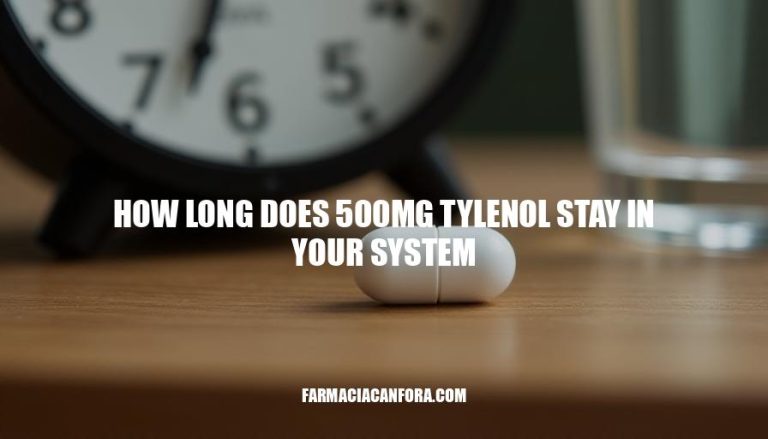


Tylenol is a common pain reliever and fever reducer. It’s used to help with headaches, muscle aches, arthritis, and menstrual cramps.
The amount of time it takes for Tylenol to leave your system depends on how quickly your body gets rid of it. In healthy adults, it usually takes around 2-3 hours for half of the drug to be eliminated.
It can take about 10-15 hours for all of it to be gone.
However, if you have liver or kidney problems, it may take longer for Tylenol to leave your system.
Acetaminophen, the active ingredient in Tylenol, undergoes absorption primarily in the gastrointestinal tract, with oral bioavailability ranging from 70% to 90%. It is distributed homogeneously throughout body fluids, with a volume of distribution of approximately 65 liters. Less than 20% binds to plasma proteins under therapeutic conditions.
Metabolism occurs predominantly in the liver, where acetaminophen is conjugated with glucuronic acid (55%) and sulfuric acid (35%).
A small fraction is metabolized by cytochrome P450 enzymes, producing hepatotoxic metabolites that are detoxified by conjugation with glutathione. In cases of overdose, glutathione depletion can lead to toxic accumulation.
Excretion is primarily renal, with metabolites eliminated in urine. Only 2%-5% of the dose is excreted unchanged.
The elimination half-life ranges from 1 to 3 hours, and approximately 98% of a single dose is cleared within 24 hours. Factors such as liver function and renal efficiency can influence these pharmacokinetic parameters.
Tylenol typically takes around 2-3 hours for half of it to be eliminated from the system in healthy adults, with all of it being gone within 10-15 hours.
However, this duration can vary depending on individual factors such as:
If you have liver or kidney problems, it may take longer for Tylenol to leave your system. Additionally, factors like liver function and renal efficiency can influence the elimination process, with approximately 98% of a single dose being cleared within 24 hours.